
There is nothing more British than rhubarb and custard and T this dessert vegetable has a strange history. Rhubarb came with the Romans and its origins are lost. We know that it came from barbarian lands beyond the Rha river (Siberia) and that the Romans called it 'Rha barbarum' from which we derived 'rhubarb.' Rhubarb didn't come with Roman custard but came with a health warning. The rhubarb rhizome (roots) is to laxatives what dynamite is to mining, explosive. It has been used to purge peoples' bodies throughout history and is still used in modern herbal medicine. Rhubarb became part of our diet in the 1700s when the first rhubarb tarts appeared as a cheap alternative to gooseberries. This thug of a plant is known as 'God's great gift' and in 1817 this gift took on a new dimension and when in London's Chelsea Physic Garden 'forced' rhubarb was accidentally discovered by gardeners who covered over several rhubarb crowns with spoil, weeks later they uncovered sweet pink stems.
RHUBARB AS AN INDUSTRY
A new industry was born and was led by farmers in the North of England within a 9 square mile area between Wakefield, Morley and Rothwell called the 'rhubarb triangle.' Forced rhubarb is sweeter than open ground rhubarb. Yet, rhubarb has one last deadly secret. Rhubarb is poisonous. Rhubarb leaves are packed full of oxalic acid which leads to organ failure. I was taught never to pick rhubarb after the second week of July as the oxalic acid returns from the leaves to the rhizome as the plant stores its energy for winter. Whether this is true or not, there is a universal truth that by July, Carol and I look at each other and say, 'I am sick of rhubarb crumble.' We use to give our crumbles away but most of our neighbours now have rhubarb crowns from us. We got ours from my dad. My dad laughed when he gave it to us, now we know why. Once you have rhubarb, you have it for life.
This story is from the {{IssueName}} edition of {{MagazineName}}.
Start your 7-day Magzter GOLD free trial to access thousands of curated premium stories, and 9,000+ magazines and newspapers.
Already a subscriber ? Sign In
This story is from the {{IssueName}} edition of {{MagazineName}}.
Start your 7-day Magzter GOLD free trial to access thousands of curated premium stories, and 9,000+ magazines and newspapers.
Already a subscriber? Sign In
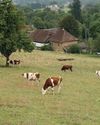
How to Buy a Smallholding in France- Long-time smallholder Lorraine Turnbull looks at the practicalities of moving to rural France
Aspiring smallholders are continually thwarted by the prices of smallholdings and property with land located within the UK. Even the humblest croft in Scotland comes with a substantial price tag and conditions which would make even an adventurous wannabee consider carefully. But all is not lost. For those willing to take the adventure of a lifetime, there is always Europe, and one of the most popular places is France.

Meet the Bournemouth goats and their supporters
These capricious animals are hard workers preserving the natural habitat

Still warm enough to sit outside with a Pizza
Henrietta Balcon uses fresh figs to create an unusual dish at Harvest time
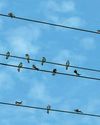
Goodbye to the birds of spring and summer
If you look and listen you might be able to see them preparing to leave says The RSPB
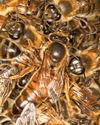
Get ready for the colder weather in the warmth of late summer
Claire Waring advises on doing the best to make sure your colonies survive until next spring

Preparing the Veg Patch for Winter
Lee Senior says, a well-run plot can excitingly continue to produce good quality, tasty, fresh food for much of winter
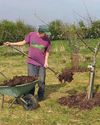
Time to prepare to plant your orchard
Wade Muggleton, smallholder and author of The Orchard Book, shares his practical experience so you can create your own fruit collection
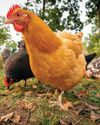
Choosing feed for the autumn
As autumn approaches, Joanna Palmer, nutritionist at the Smallholder Range, offers advice on choosing the right feed to support your adult birds through their annual moult and ensure your young birds grow and finish well at this time of the year.

Vet advice from an experienced poultry vet
Reflecting on how much the humble hen has helped people world wide plus advice on stopping the scourge of red mite

Give your hens some support
Paul Donovan looks at the right and wrong ways of handling birds